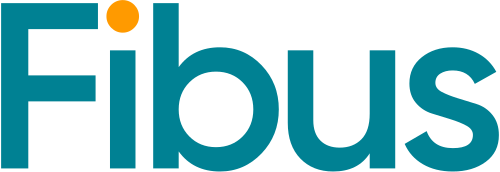Private Equity fund holdings and factoring
In the 2021 edition of the ‘’Guide Capital Investment’’, the magazine Décideurs interviewed the founding partners of Fibus, Thibaut Robet and Gaëtan du Halgouët. They explained why it is that factoring is so popular in the context of mergers and acquisitions thanks to the benefits of this type of financing which supports company growth.

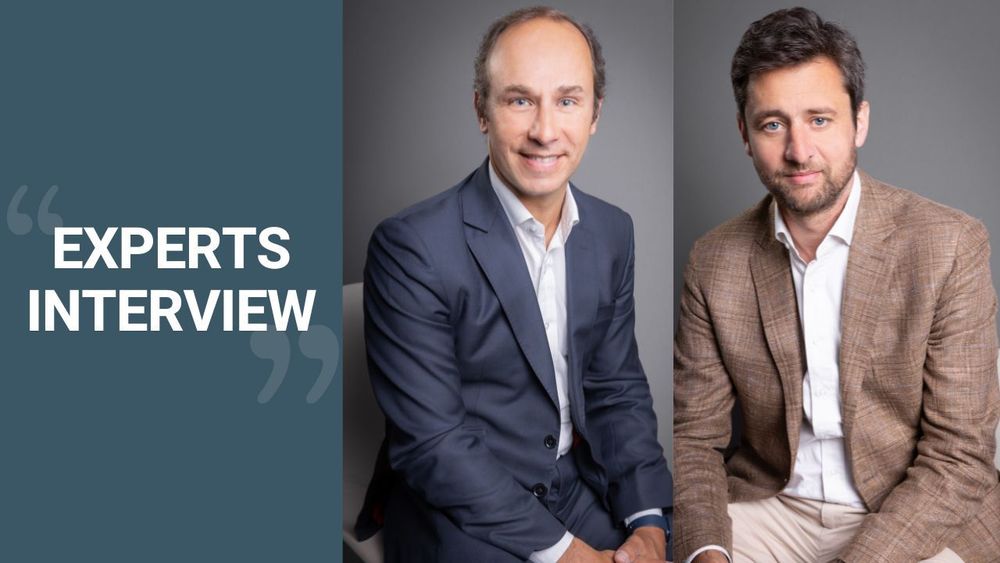
In 2005, Gaëtan du Halgouët and Thibaut Robet founded Chateaudun Crédit, a French specialist factoring consultancy. They discuss the usefulness of factoring with us in the current context as well as its role in the context of M&As.
Décideurs. Can you tell us a little about Chateaudun Crédit.
Thibaut Robet: Chateaudun Crédit is today the leading specialist factoring consultancy firm in Europe. We help French firms and international groups to implement the most effective possible accounts receivable financing solutions. Our work notably covers evaluation of financing potential and project management, from the tender process to initial financing. This includes negotiation of terms and conditions, client risk management (credit insurance), team training and IT roll-out.
The factoring market saw a significant drop in 2020? What caused it?
Gaëtan du Halgouët: According to EUF, in 2020, the factoring market fell by 5.4% in Europe. And by 7.5% in France. The sharpest falls were in Italy with -10.9%, in the UK with -12%, in Spain with -7.6% and in Portugal with -6.9%. Only a handful of countries recorded slight rises, including Germany with 1.3%, the Netherlands with 1.4% and Poland with 3%.
There are two very simple explanations for the sharp fall in the factoring market. Firstly, a lot of companies stopped trading during the Covid lockdown and have still not regained their pre-Covid volumes. The drop of sales revenue for factored companies has a direct impact on volumes purchased and financed by factors. The second explanation, which has been confirmed in several European countries, is the massive distribution of government-backed loans. These loans, repayment of which was deferred until 2022 in France, largely cover the cashflow requirements of many companies, which under normal circumstances would have used factoring services.
However, not all companies used government-backed loans. In 2020, some decided to implement wide-scale pan-European factoring programmes. We supported some of these large international firms, primarily held by private equity funds.
"Not all companies used government-backed loans and decided, in 2020, to implement large-scale factoring programmes."
There are two very simple explanations for the sharp fall in the factoring market. Firstly, a lot of companies stopped trading during the Covid lockdown and have still not regained their pre-Covid volumes. The drop of sales revenue for factored companies has a direct impact on volumes purchased and financed by factors. The second explanation, which has been confirmed in several European countries, is the massive distribution of government-backed loans. These loans, repayment of which was deferred until 2022 in France, largely cover the cashflow requirements of many companies, which under normal circumstances would have used factoring services.
However, not all companies used government-backed loans. In 2020, some decided to implement wide-scale pan-European factoring programmes. We supported some of these large international firms, primarily held by private equity funds.
"Not all companies used government-backed loans and decided, in 2020, to implement large-scale factoring programmes."
What was 2020 like for Chateaudun Crédit?
T. R. Whilst our business activities in France recorded a clear slowdown, international business allowed us to recover and record growth of 10%. In 2020, we implemented over 700 million euros in new factoring financing lines.
This was the year when we launched the development of new modules in our factoring software programme, notably to supervise client risks and credit limits.
We also initiated an overhaul of our websites to improve our visibility and streamline our communications.
This was the year when we launched the development of new modules in our factoring software programme, notably to supervise client risks and credit limits.
We also initiated an overhaul of our websites to improve our visibility and streamline our communications.
Factoring is a bottom-line financing tool, how is this of interest to investment funds?
G. d. H. Above all, factoring is the financing tool which offers the very best cost-to-return ratio. It allows users to benefit from the largest possible financing at the lowest cost. Companies under LBO often have confirmed credit lines [RCF, or revolving credit facility] in order to meet cashflow requirements. This line is limited in its total and is always combined with a clause – or covenant – which requires early repayment in case of any financial difficulties. In this instance, factoring always remains operational. Moreover, when it is deconsolidating factoring, it does not affect debt levels. It allows companies, therefore, to sharply increase their cashflow whilst improving the presentation of their financial statements. An increasing number of private equity firms want their holdings to use factoring.
"Factoring is the financing tool offering the very best cost-to-return ratio."
"Factoring is the financing tool offering the very best cost-to-return ratio."
What sort of profile of investment funds use this method of financing?
T. R. We work a lot with majority LBO funds, whether national or international, and who are committed in their holdings. Special funds, notably for corporate recovery operations, almost always use factoring to secure the cashflow of their holdings.
At what moment do private equity funds use factoring in their holdings?
G. d. H. This matter is generally considered before the acquisition to be implemented in the months following closing. We have negotiated this just after signing for financing on the same date as closing. Often, inter alia, it is implemented to finance external growth, participate towards company refinancing, and facilitate dividend payments.
How are you preparing for the much-awaited financial upturn?
T. R. In 2022, companies should be prepared to finance their growth whilst repaying their government-backed loans. Preparations for 2022 should begin now.
At Chateaudun Crédit, we are anticipating this by hiring new talent in our consultancy and IT teams. Eight people are currently being recruited, increasing our workforce from 30 to 38. At the same time, we are working on launching a new version of our factoring and credit insurance software.
Read the full interview
At Chateaudun Crédit, we are anticipating this by hiring new talent in our consultancy and IT teams. Eight people are currently being recruited, increasing our workforce from 30 to 38. At the same time, we are working on launching a new version of our factoring and credit insurance software.
Read the full interview
These articles may interest you
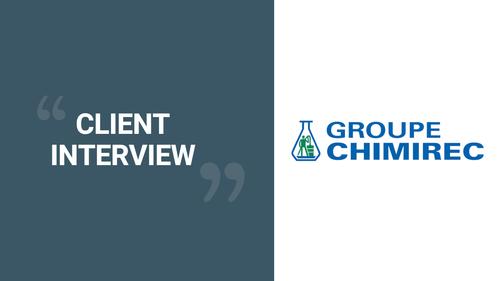
How Chimirec unlocked the full potential of its factoring with ARI Trade, by Fibus Digital
With ARI Trade, the Chimirec Group has reduced the time spent managing its factoring operations from 4 days to 1.5 days per month — representing a total time saving of 30 days per year.
Additional benefits for Chimirec’s CFO include improved working capital, a consolidated view across 15 factoring contracts, and enhanced receivables traceability.
Additional benefits for Chimirec’s CFO include improved working capital, a consolidated view across 15 factoring contracts, and enhanced receivables traceability.
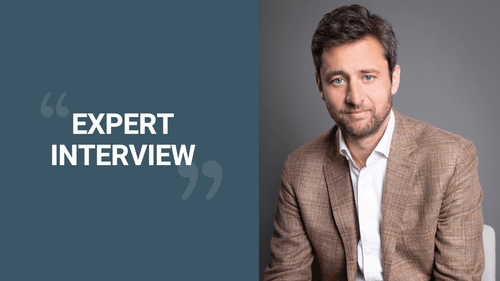
How the Credit Manager safeguards the company’s cash flow
A function at the heart of financial stability The Credit Manager’s role extends far beyond preventing bad debt: today, they act as the true conductor of the order-to-cash process, ensuring the company maintains healthy, predictable, and actively managed cash flow. We
spoke with Thibaut Robet, CEO of Fibus, a firm specialising in order-to-cash management.
spoke with Thibaut Robet, CEO of Fibus, a firm specialising in order-to-cash management.
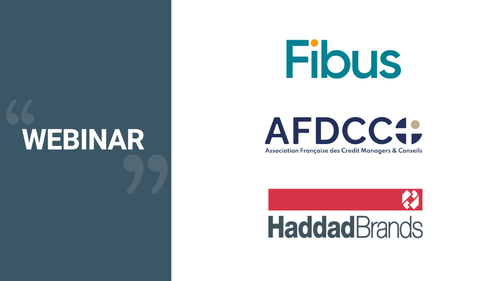
How can credit insurance support growth in a sector under pressure?
Economic difficulties are mounting and weighing more heavily on certain sectors: how can you make the Credit Manager a business partner who supports the company's growth? Discover the testimony of HADDAD BRANDS EUROPE in the webinar hosted by Alexia Monteillet, Credit Risk Manager at HADDAD BRANDS EUROPE, and Marc Chaquès, Credit Insurance Director at Fibus, in partnership with the AFDCC.
Contact us, so that, together, we can find the best solution for financing your accounts receivable.
Write us
